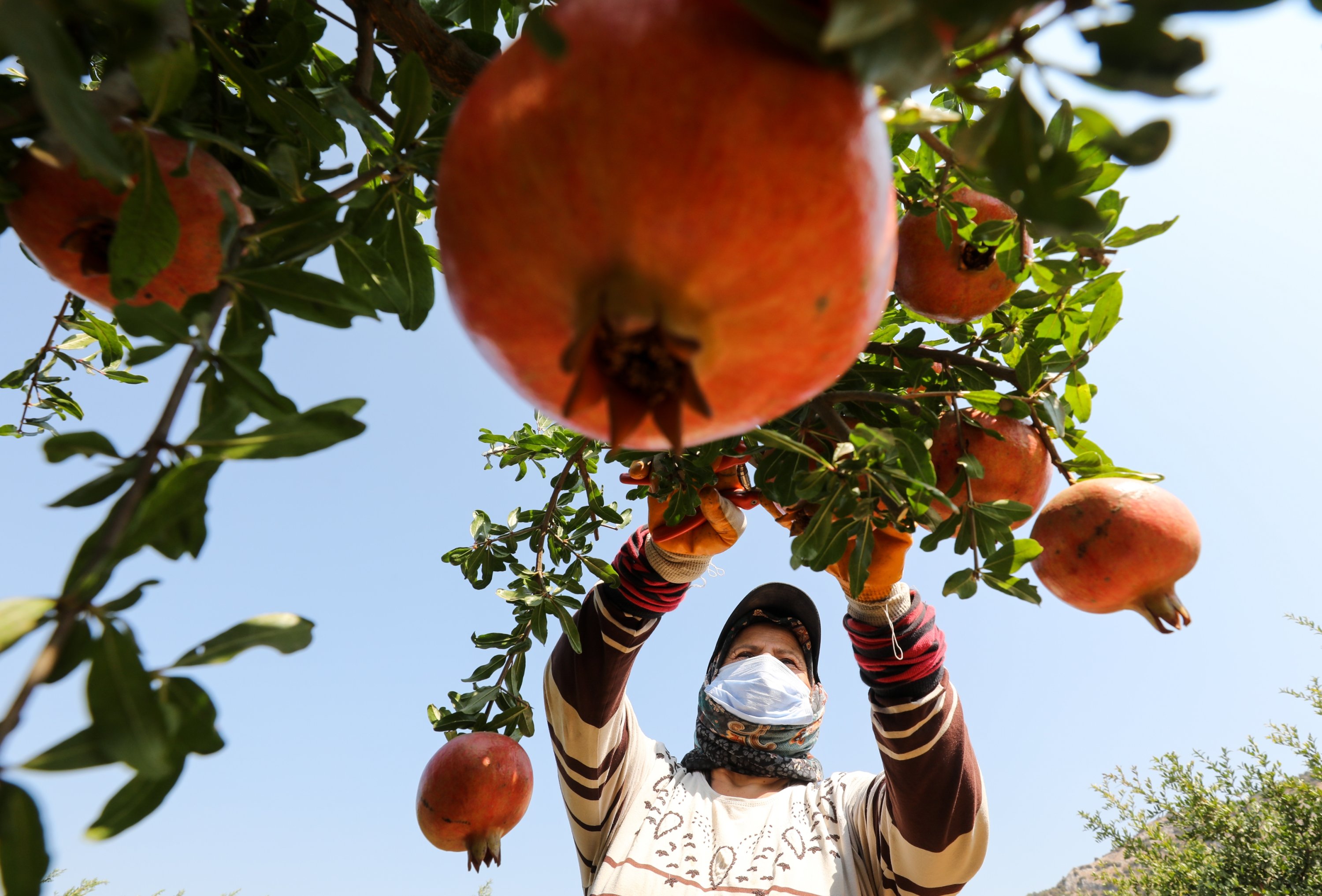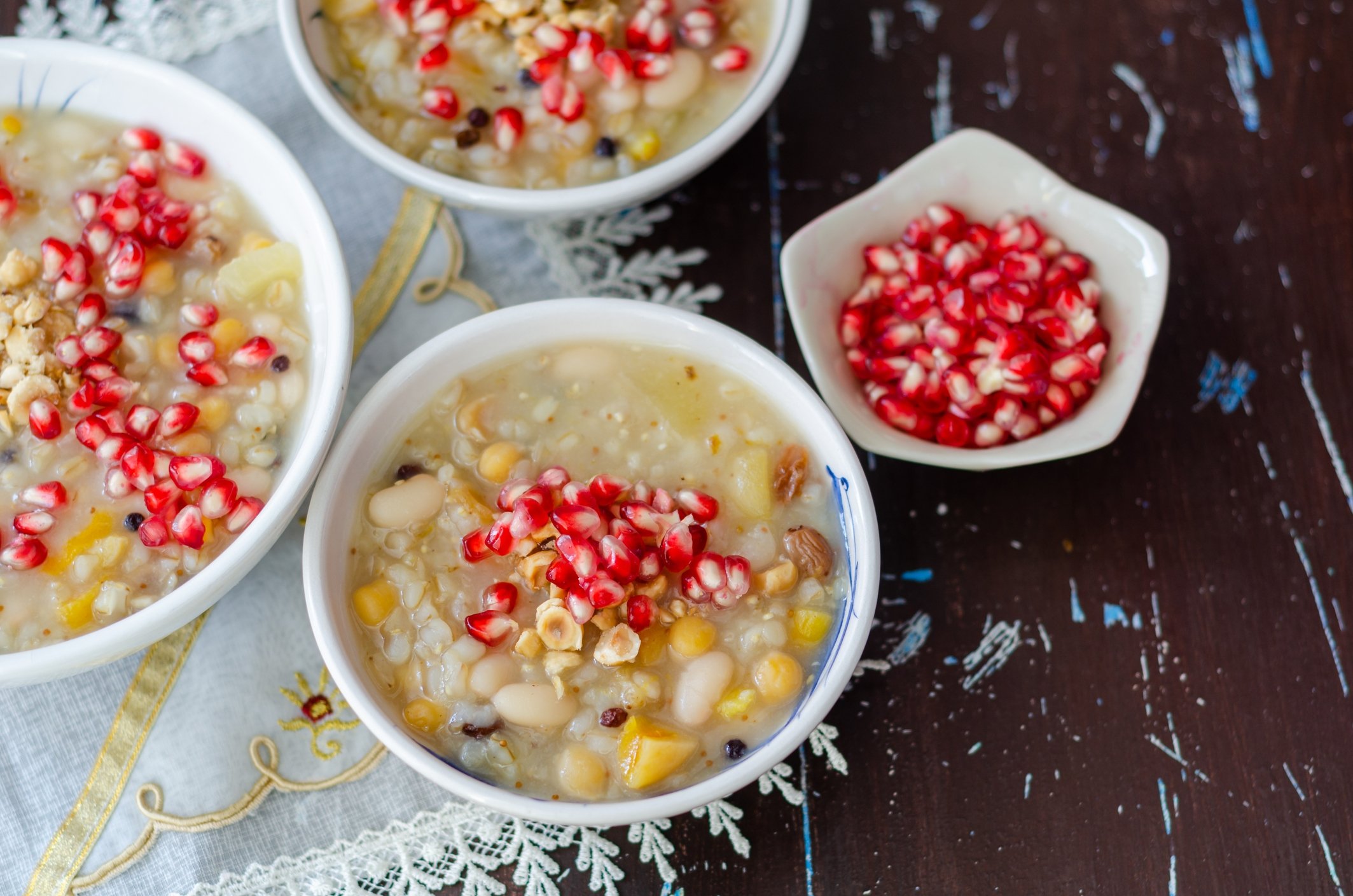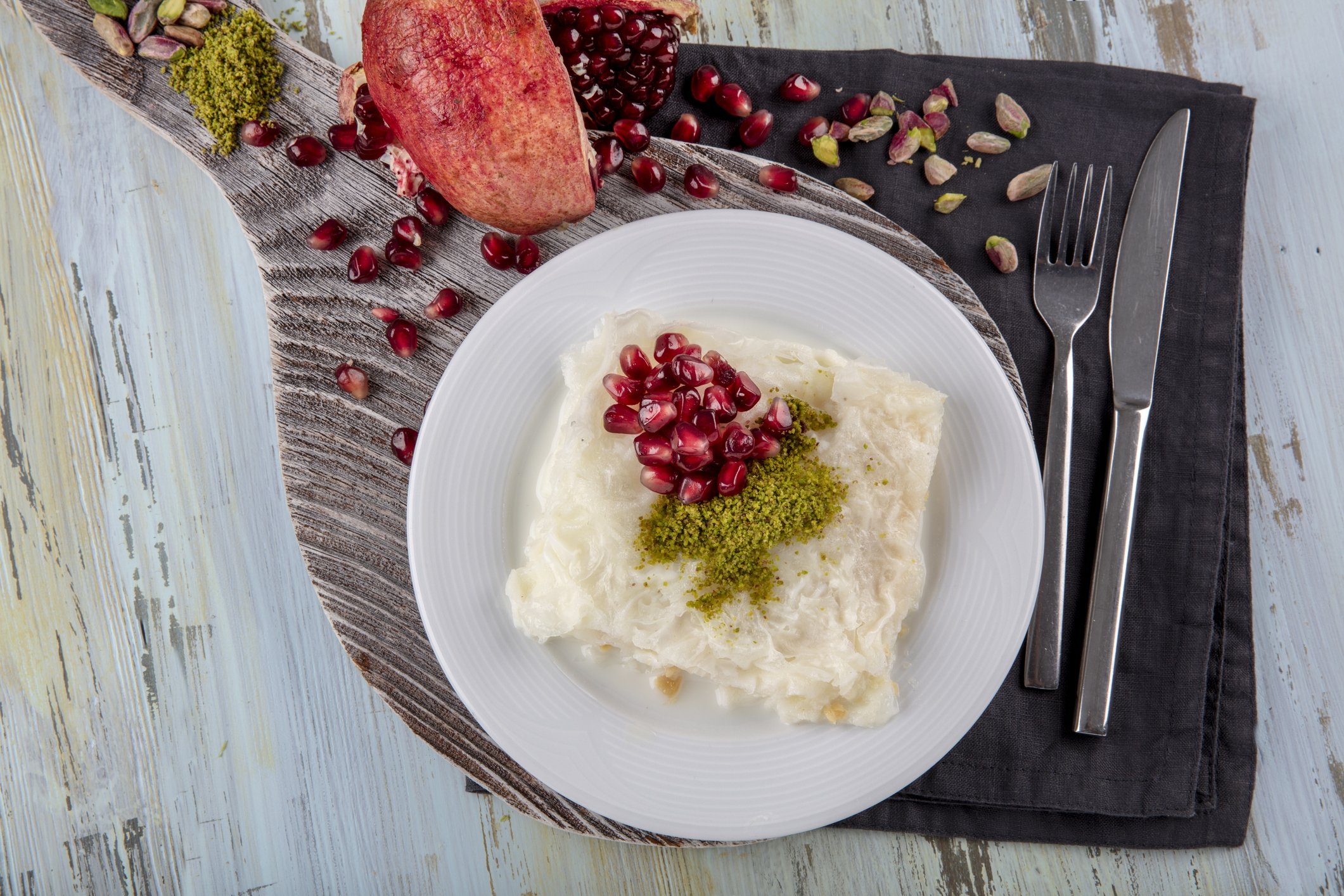The Beloved Pomegranate: A Treasure in Turkey
All about pomegranate, fruit of paradise, in Turkish cuisine
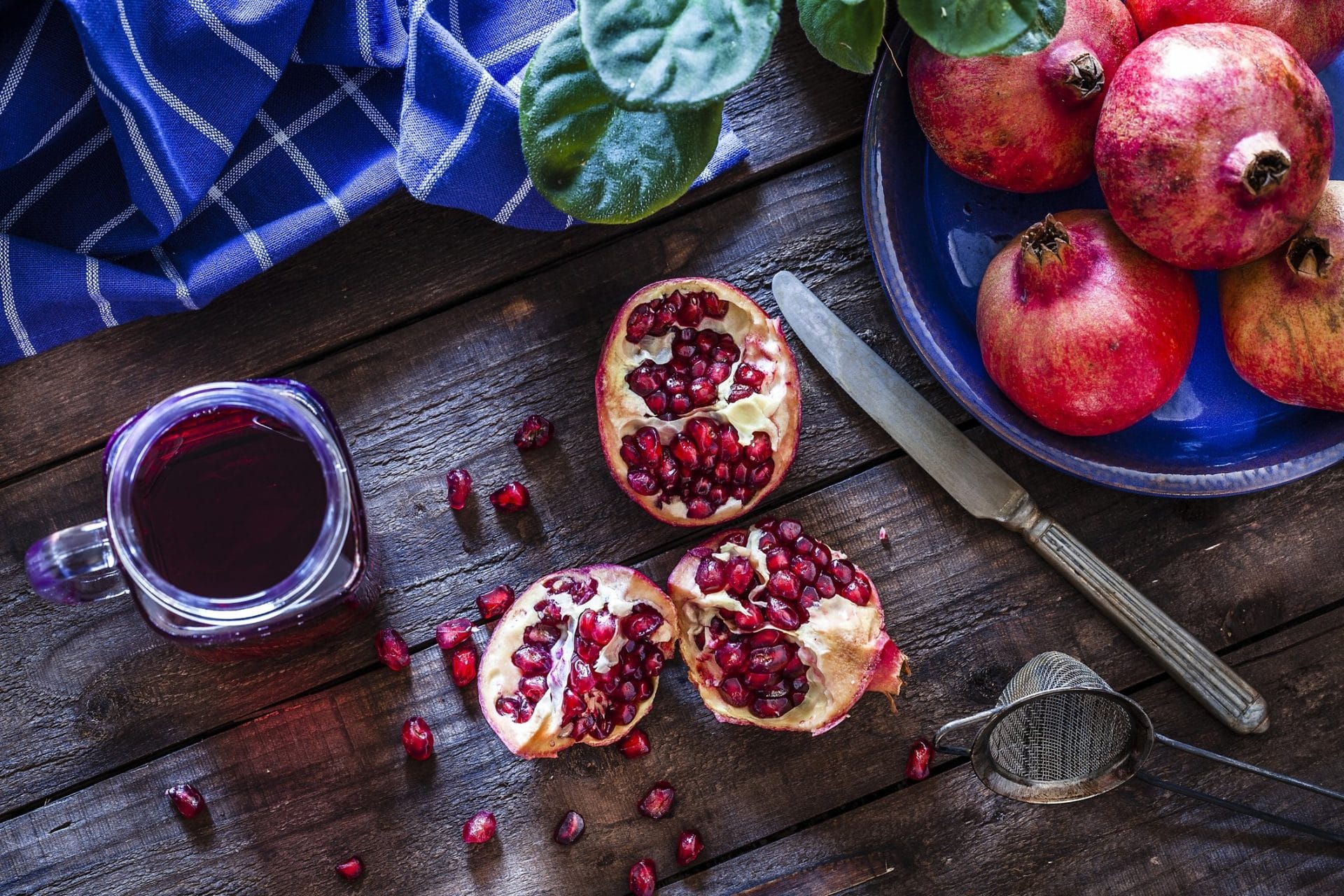
The pomegranate, cherished for centuries, holds a special place in Turkish culture. Beyond its nutritional value and delicious flavor, it is deeply woven into traditions and beliefs.
Symbol of Luck and Prosperity
In Turkey, the pomegranate, or “nar” in Turkish, is a symbol of good fortune, prosperity, and abundance. Its vibrant ruby-red color and gem-like seeds make it a visual and cultural icon. Nearly every household has a pomegranate-themed decoration, symbolizing luck and wealth.
Traditions Surrounding the Pomegranate
- New Year’s Eve: Smashing a pomegranate on the floor is believed to bring good fortune.
- Weddings: A pomegranate ritual is performed to ensure prosperity for the newlyweds.
- Religious Significance:
- In Islam, the pomegranate is mentioned in the Quran and is believed to have been part of the Garden of Eden.
- In Christianity, it symbolizes resurrection and appears in devotional art.
- In Judaism, it represents fruitfulness and is consumed during Rosh Hashana, with its seeds symbolizing the 613 commandments of the Torah.
Nutritional Powerhouse
Pomegranates are not just culturally significant but also packed with incredible health benefits.
Rich in Vitamins and Antioxidants
- Vitamin C: A single pomegranate provides up to 40% of the daily requirement.
- Vitamins B and K: These essential nutrients contribute to overall health.
- Folate and Potassium: Pomegranates are excellent sources of these nutrients.
Health Benefits
- Anti-inflammatory Properties: Flavonoids in pomegranates help reduce joint tenderness in arthritis patients.
- Heart Health: Pomegranate juice lowers blood pressure and protects the heart.
- Cancer Prevention: Studies suggest it may help prevent certain types of cancer.
- Memory Boost: Regular consumption is linked to improved memory.
A Surprising Botanical Fact
Did you know pomegranates are classified as berries? Botanically speaking, berries have seeds inside the fruit, which makes pomegranates, tomatoes, bananas, and cucumbers true berries. Surprisingly, fruits like raspberries and strawberries don’t meet the criteria!
A Mediterranean Legacy
Pomegranates have been cultivated in the Mediterranean for thousands of years, celebrated for their symbolism and benefits. As their popularity grows worldwide, more people are embracing this blessed fruit for its rich cultural heritage and exceptional health properties.
Enjoying pomegranates in all their forms—fresh seeds, juice, or as pomegranate molasses—remains a delightful tradition and a testament to their timeless appeal.
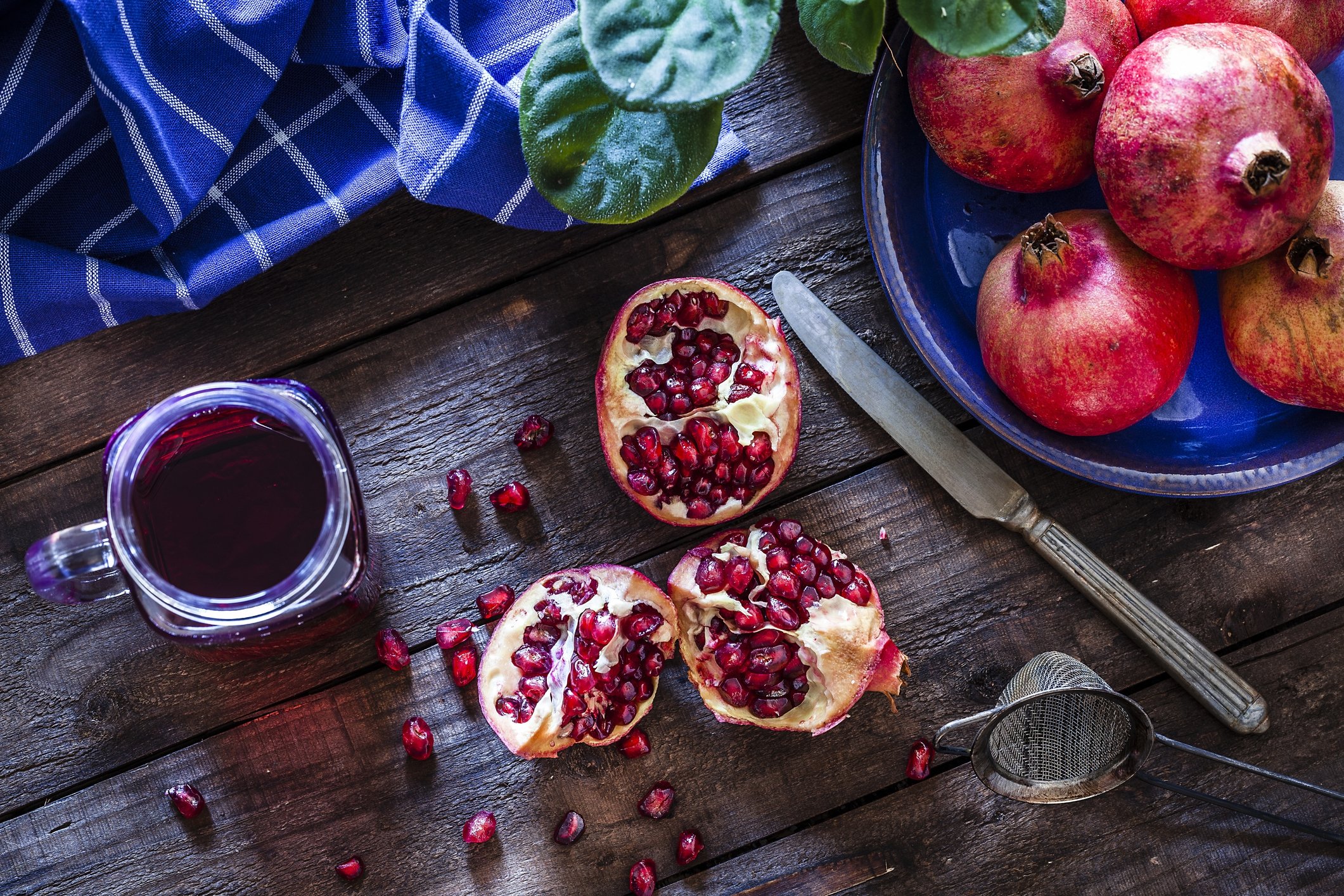
While most of us are more familiar with the prevalent blood-red variety, in Turkey there are both red and white pomegranate trees with the latter being sweeter and containing softer seed pods, which are referred to as arils. While the fruit is available from the end of summer into spring, in the next month in towns throughout Turkey, the widespread preparation of “nar pekmezi,” aka pomegranate molasses, will soon begin. It is usually a community affair as local women come together to prepare this special sauce in giant cauldrons. However, pomegranate molasses can also easily be prepared in the comfort of your home.
Pomegranate Molasses: The Secret Ingredient in Turkish Cuisine
Pomegranate molasses, with its unique balance of sweetness and tanginess, is a staple in Turkish cooking. From vibrant salads to hearty kebabs, this versatile ingredient adds depth and flavor to a variety of dishes.
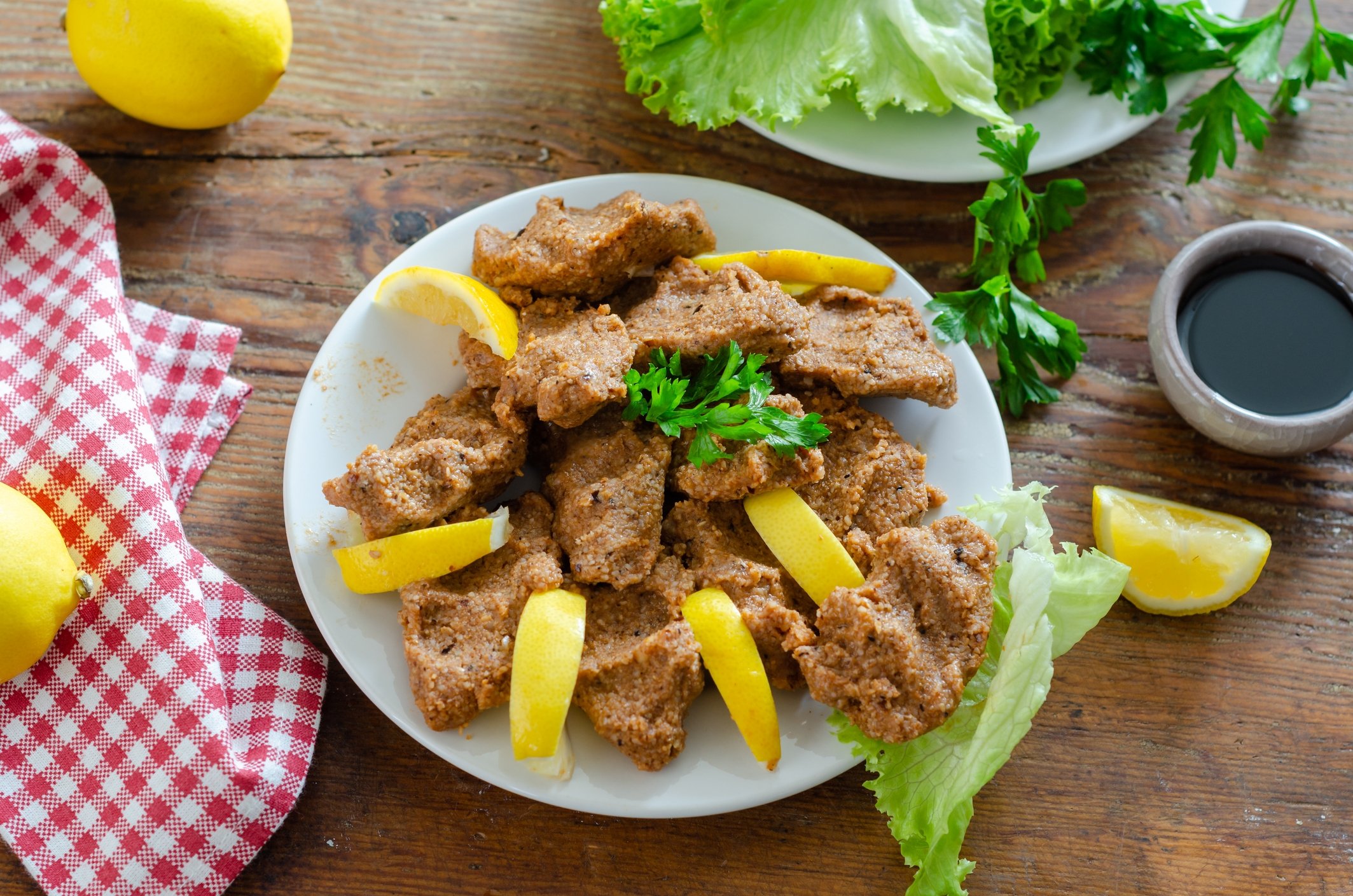
Pomegranate molasses is an important ingredient in Turkish cuisine and is used to dress nearly every salad and as a sweet and savory sauce to complement spicy dishes such as çiğ köfte, which are bulgur patties mixed with spices and consumed either in a tortilla-like flatbread referred to as lavash or simply wrapped up in a leaf of lettuce. Pomegranate molasses is an indispensable accompaniment to this popular vegetarian street food, which in the past was made out of raw meat.
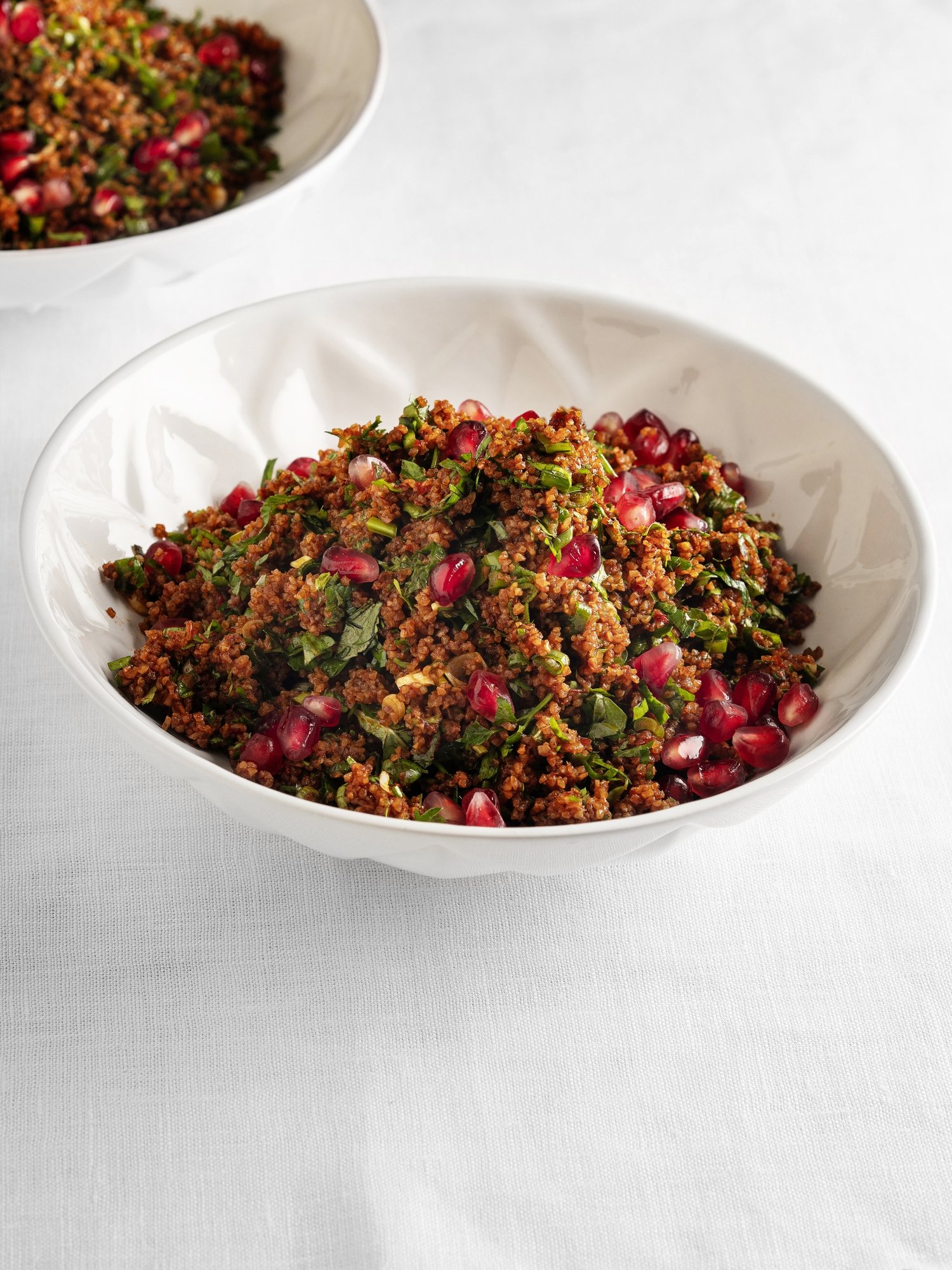
Kısır: A Sweet and Tangy Bulgur Delight
Kısır, one of Turkey’s most beloved home-cooked dishes, features fine bulgur, fresh tomatoes, herbs, and red pepper paste. A generous drizzle of pomegranate molasses gives it a crave-worthy tang that elevates this simple yet flavorful dish.
Gavurdağı Salad: A Gaziantep Specialty
Gaziantep’s famous gavurdağı salad is a colorful combination of finely chopped tomatoes, onions, peppers, crushed walnuts, and pomegranate seeds. Dressed with olive oil, pomegranate molasses, and sumac, it offers a burst of flavor in every bite.
Mardin’s Pomegranate Salad
Hailing from Mardin, the traditional pomegranate salad shines a spotlight on the fruit itself. Made primarily of pomegranate seeds, it celebrates the vibrant, sweet-tart taste of this beloved ingredient.
Muhammara: The Perfect Spread
Pomegranate molasses is a key component in muhammara, a popular walnut, garlic, and red pepper paste spread. Its addition creates a rich, tangy flavor that perfectly complements the earthy and spicy notes of the other ingredients.
Nar Ekşili Soğan Kebabı: A Culinary Treasure
One of the most unique and cherished dishes from Gaziantep is nar ekşili soğan kebabı. This dish features mini meatballs stuffed into shallots, baked to perfection, and coated with a savory-sweet pomegranate molasses sauce.
A Culinary Gem
Whether used as a dressing, marinade, or sauce, pomegranate molasses is a vital element of Turkish gastronomy. It transforms dishes into flavorful masterpieces and showcases the culinary creativity of Turkey’s regional kitchens.
Two of Turkey’s most iconic and cherished desserts celebrate the vibrant and flavorful pomegranate. These sweet creations highlight the cultural and culinary significance of this beloved fruit.
Güllaç: A Ramadan Specialty
Güllaç is a traditional dessert enjoyed primarily during the holy month of Ramadan. It is made from thin, phyllo-like pastry layers, each sprinkled with crushed walnuts and soaked in sweetened milk. The dessert is topped with glistening pomegranate arils, adding a burst of flavor and color. The combination of textures and the refreshing taste of pomegranate make Güllaç a standout dessert during festive times.
Aşure: The Sacred Noah’s Pudding
Aşure, also known as Noah’s Pudding, is a rich dessert porridge made from a mix of grains, nuts, and fruits, with pomegranate arils adding the perfect touch of sweetness and vibrancy.
Ashura Day Tradition
Aşure holds deep religious and cultural significance, especially on “Ashura Day.” Celebrated on the 10th day of Muharram, the first month of the Islamic calendar, it marks the day Moses and the Israelites were saved from Pharaoh’s army when God parted the sea.
In Turkey, it is customary to prepare Aşure in abundance and share it with neighbors, friends, and loved ones as an act of kindness and community.
Daily Health Ritual: Fresh Pomegranate Juice
One of the joys of living in Turkey is the ease of accessing fresh pomegranate juice.
Fresh Juice on Every Corner
In larger towns and cities, fresh juice stands are a common sight. These juiceries offer freshly pressed pomegranate juice at affordable prices, often combined with other fruits like orange, apple, or even kiwi. Whether purchased from a street vendor or a traditional fast-food locale, a glass of this ruby-red elixir is a daily health boost for many.
Pomegranate, whether in desserts or as juice, continues to play a central role in Turkish culinary and cultural life, offering both flavor and health benefits to those who savor it.

